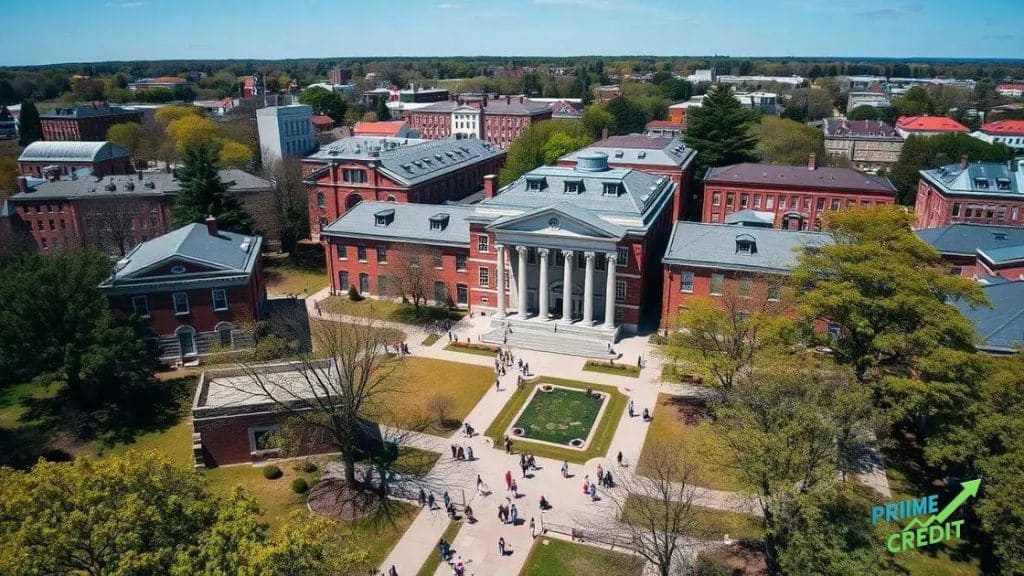Controversy over Harvard University’s tax-exempt status

The controversy over Harvard University’s tax-exempt status raises critical questions about equity in funding and the impact on public education, suggesting potential reforms for greater accountability and community support.
Controversy over Harvard University’s tax-exempt status raises important questions about tax fairness and institutional privilege. You might be surprised to learn how this impacts funding for public services.
Understanding Harvard’s tax-exempt status
Understanding Harvard’s tax-exempt status can be challenging, especially given its implications for the university and the public. This status allows Harvard to operate without paying certain taxes, a situation that raises questions and concerns.
The foundation of this status lies in the federal and state tax codes, which provide exemptions for educational organizations. To grasp the complexities, we need to consider various factors that contribute to this unique position.
Historical Context
Originally, tax exemptions were created to support institutions that provide public benefits, such as education. Harvard, as a premier educational institution, certainly fits within this framework. However, its vast endowment and resources have led to a debate about whether these exemptions still serve their intended purpose.
Arguments For and Against
There are strong opinions on both sides of this issue. Proponents argue that the tax exemptions enable Harvard to reinvest in its programs, scholarships, and facilities, ultimately benefiting students and society.
- Supports scholarships for low-income students
- Funds research that can drive innovation
- Maintains historic buildings and campus resources
On the other hand, critics point out that Harvard’s immense wealth questions the fairness of its tax-exempt status. They say that it creates inequality in the funding system, particularly in communities that rely on public resources.
Impact on Public Education Funding
The debate surrounding Harvard’s tax-exempt status is not just about one university; it extends to how funding is allocated for public education. Many believe that Harvard, if taxed properly, could contribute significantly to local and state budgets, which would benefit public schools.
This situation raises questions about equity. While Harvard reaps the benefits of its tax status, other institutions struggle with funding shortfalls. Understanding this dynamic is key in exploring how tax policies could support a more balanced educational system.
Moving Forward
As discussions continue, it will be crucial to monitor how these debates evolve and what changes might come to the tax codes. The implications for institutions like Harvard could reshape educational funding for years to come. Stakeholders from various areas will need to participate in these conversations to find a pathway that serves both the university and the public effectively.
Historical context of tax exemptions

The historical context of tax exemptions is essential to understanding why institutions like Harvard benefit from them. These exemptions were initially created to encourage and support educational organizations, which are considered to provide a public good.
In the early 1900s, tax codes began to acknowledge the role that nonprofit organizations, including universities, play in society. This marked a significant shift in how governments viewed education and its funding. As colleges and universities expanded, they became vital to community development. This led to broader support for tax-exempt status.
Key Developments
Throughout the 20th century, several key legislative changes solidified the framework for tax exemptions. For example, the Revenue Act of 1951 defined what constitutes a charitable organization, providing clarity on which institutions could qualify for these benefits.
- Establishment of clear guidelines for nonprofit status.
- Tax exemptions seen as a way to promote higher education.
- Expansion of educational access and resources.
As more universities sought this status, concerns also emerged. Some argued that wealthy institutions with substantial endowments, like Harvard, were disproportionately benefiting from these tax breaks. This has led to ongoing debates about fairness and equal access to funds across educational institutions.
Changing Perspectives
In recent years, the conversation around tax exemptions has shifted considerably. Critics emphasize that institutions with considerable wealth should contribute more to the communities they serve. This perspective is gaining traction as public funding for education continues to decrease.
For instance, many argue that if universities paid property taxes, local schools and services could receive significant financial support. The challenge now lies in balancing the historical intentions behind tax exemptions with modern-day realities and expectations.
Arguments for and against tax exemptions
Understanding the arguments for and against tax exemptions is crucial in the debate surrounding organizations like Harvard. Advocates of tax exemptions believe they foster growth and support educational institutions that benefit society.
Supporters often point to how these exemptions allow universities to invest more in student programs, scholarships, and facilities. These funds help create a better educational environment for all students and drive innovation through research and development.
Pros of Tax Exemptions
Some key benefits of maintaining tax exemptions for institutions like Harvard include:
- Promoting educational access: By reducing financial burdens, universities can offer more scholarships, allowing a diverse range of students to attend.
- Encouraging research: Universities can allocate resources towards groundbreaking research that can lead to significant societal improvements.
- Strengthening community ties: Exemptions enable universities to maintain community programs and outreach initiatives that help those in need.
However, there are also compelling arguments against these exemptions. Critics argue that wealthy institutions with large endowments should not benefit from such financial relief, especially when it could impact local communities.
Cons of Tax Exemptions
Opponents of tax exemptions contend that:
- Decreased public funding: If wealthy universities paid their fair share of taxes, local schools could receive much-needed financial support.
- Perpetuating inequality: Allowing rich institutions to remain tax-exempt can widen the gap between affluent universities and those struggling for resources.
- Lack of accountability: Tax exemptions create a perception of privilege that minimizes the responsibility of wealthy institutions to serve their communities.
Ultimately, the discussion involves balancing these arguments for and against tax exemptions. The goal is to find an equitable solution that supports education while addressing community needs.
Impact on public education funding
The impact on public education funding due to the tax-exempt status of institutions like Harvard is a significant concern. As universities benefit from tax breaks, the question arises about how this affects local and public education systems.
Many see these tax exemptions as a double-edged sword. On one hand, they allow universities to invest more in their facilities and programs. On the other hand, this financial relief means that these institutions do not contribute to local tax revenues that fund public services, including schools.
Funding Challenges
Public schools often rely on local property taxes for funding. When affluent universities do not contribute through taxes, this can create a gap in available resources for public education.
- Potential loss of revenue: With tax exemptions, cities miss out on funds that could support essential services.
- Resource disparities: Schools in affluent areas may have more funding than those in less wealthy communities, leading to inequities.
- Increased dependency on state funding: Public schools may need to rely more heavily on state funds to compensate for local tax revenue losses.
Moreover, the community may feel the financial strain as funding for schools becomes more competitive. When wealthy universities evade taxes, it can strain budgets and limit the resources available for students in public education.
Potential Solutions
Finding ways to address these funding challenges is essential. One idea is for tax codes to require a greater contribution from wealthy universities to support local communities.
This could involve implementing a moderate tax on endowments to generate funds that could be funneled back into public education. Such measures would help create a more balanced system where both universities and public schools contribute to the educational landscape.
Future prospects for university tax status
The future prospects for university tax status are becoming a hot topic of discussion, especially as public and private institutions face increasing scrutiny. As the education landscape changes, so too might the policies regarding tax exemptions for universities like Harvard.
Many believe that universities need to adapt to the evolving needs of society. Discussions about fairness and tax equity are at the forefront. There’s a growing call for universities with substantial endowments to reevaluate their roles in supporting local communities through taxes.
Potential Changes in Legislation
As lawmakers recognize the impact of tax exemptions on public funding, they may consider reforms. Possible changes could include:
- Increased transparency: Universities might need to disclose more about how they spend their funds and the benefits they provide to local areas.
- Endowment taxes: Legislators could introduce taxes on large endowments to generate revenue for community projects and public education.
- Accountability measures: Universities may have to demonstrate their commitment to community service to maintain tax-exempt status.
These changes could reshape how tax exemptions work in higher education. If implemented, they may lead to a more balanced approach to funding and accountability.
Community Engagement
Another key prospect is the emphasis on community engagement. Universities may start to focus more on their local impact. By creating partnerships with public schools and local organizations, they can align their resources with community needs.
Such partnerships could enhance collaboration and lead to shared benefits, including better educational programs for students and increased resources for local schools. The expectation is that as universities take a more active role in their communities, they will not only foster goodwill but also strengthen their arguments for maintaining tax exemptions.
FAQ – Frequently Asked Questions about University Tax Status
What are tax exemptions for universities?
Tax exemptions allow universities to operate without paying certain taxes, helping them allocate more resources to education and research.
Why are tax exemptions for universities controversial?
The controversy arises from wealthy universities benefiting from tax breaks while local communities struggle with funding for public services and education.
How do tax exemptions affect public education funding?
When wealthy universities do not pay taxes, local schools may miss out on crucial funding, leading to disparities in educational resources.
What changes might be expected in university tax status in the future?
Future prospects may include increased accountability, potential endowment taxes, and stronger community engagement by universities to support local needs.





